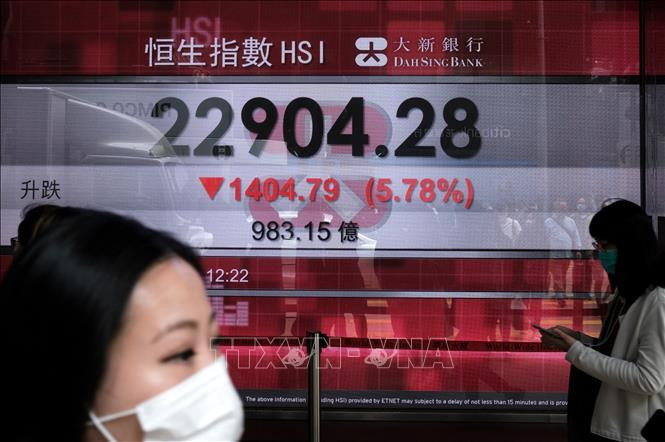Bloomberg news agency quoted international economic experts as saying that the environment of higher interest rates for a longer period of time is affecting investment trends and strategies in Asia.

Aggressive corporate reforms in Japan and South Korea are attracting foreign investors with a taste for value stocks, according to experts at JPMorrgan Asset Management and AllianzGI. Meanwhile, M&G Investment Management said investors were drawn by near-record low valuations in Chinese stocks. Other safe havens favored in Asia include exporters and domestically oriented Indian stocks.
As expectations of an early easing of monetary policy by the US Federal Reserve (Fed) have faded, international multi-asset managers are starting to look more carefully in a very different environment.
Hawkish policies by central banks in the region, aimed at protecting their currencies from depreciation against the US dollar, have reduced the appeal of bonds, one of the traditional safe-haven assets, pushing attention to stock returns.
“Higher interest rates over a longer period of time will be a headwind for capital flows into Asia,” said Gary Tan, portfolio manager at Allspring Global Investments. He said that in the current environment, domestically focused stocks could be safe havens, such as Indian infrastructure stocks or Chinese domestic consumer and utility stocks.
The latest FedWatch tool survey shows the Fed is more likely to start easing policy in November, instead of June as previously estimated by markets, with fewer than three rate cuts in 2024.
Foreign funds have sold more than $7 billion of emerging Asian stocks through April and are on track for the first outflow in six months, according to data compiled by Bloomberg.
In the regional bond and currency markets, the outlook is even bleaker. A longer period of tightening by the Fed means that US government bonds will remain attractive to foreign investors, rather than “pour money” into “homegrown” bonds.
A Bloomberg gauge of local-currency government bonds in emerging Asia has lost 1.7% in dollar terms this year, while the MSCI Asia Pacific equity benchmark excluding Japan has risen by the same percentage.
However, M&G Investment Management believes that mainland China and Hong Kong (China) stock markets are in a "revival" position as moderate inflation and China's efforts to restore growth allow markets to become more "immune" to the Fed's policy outlook. Signs of improved economic growth and better corporate earnings are also attracting foreign capital to Chinese stock markets.
Gautam Samarth, a multi-asset fund manager at M&G, said the Chinese stock market is “sought after” because of its “attractive valuations” and “unique” trends.
Global emerging market funds have switched to neutral from underweight on mainland Chinese stocks, while risk appetite in Asian funds remains at a seven-month high, HSBC strategists wrote in a note.
Although the Japanese stock market is expected to undergo a technical correction after consecutive increases over the past several weeks, Japanese stocks remain the top choice for many foreign investors thanks to the recovery of economic growth and efforts to promote corporate reform.
“Japanese equities will benefit, through a combination of a weaker yen and improving global demand, as well as Japanese banks benefiting from rising government bond yields,” said George Efstathopoulos, a money manager at Fidelity International.